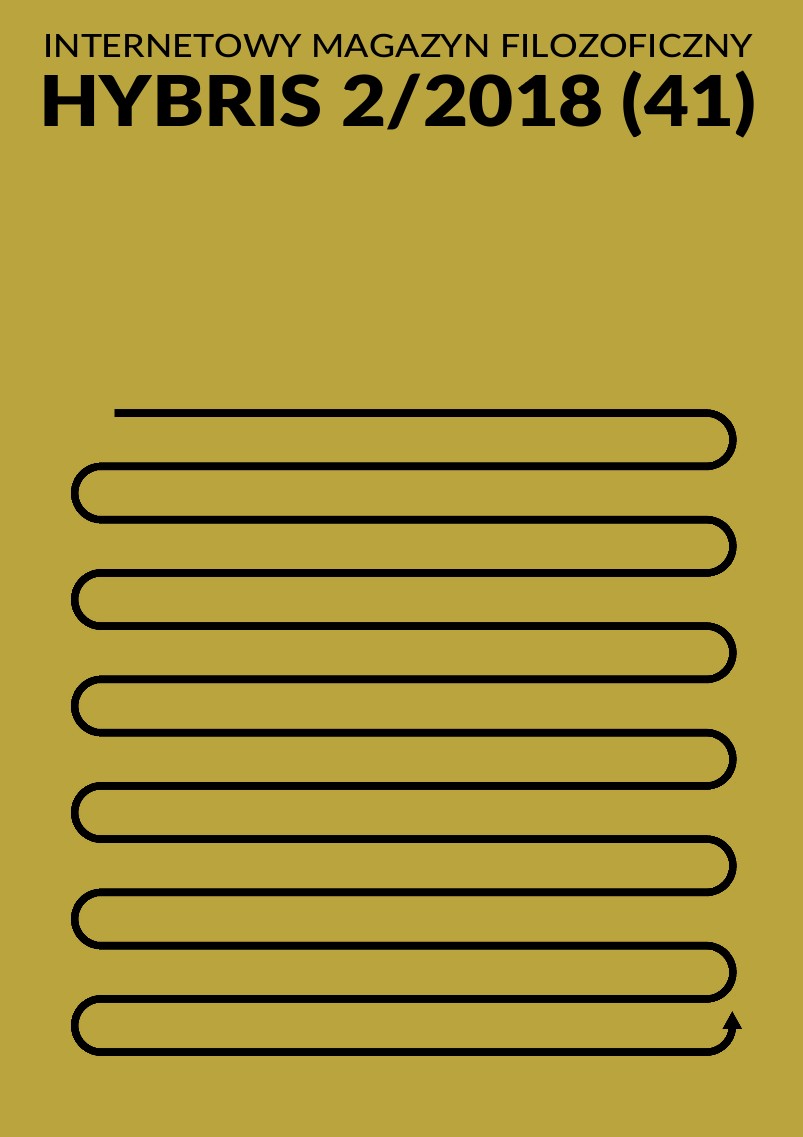Paul Feyerabend’s Amodern philosophy
DOI:
https://doi.org/10.18778/1689-4286.41.05Keywords:
Feyerabend, Latour, modernity, postmodernism, amodernityAbstract
Paul Feyerabend’s philosophy, mainly due to his radically pluralistic claims, may be regarded as an example of postmodern philosophy of science. At the same time Feyerabend’s thought contains some strictly modern ideas and noticing those ideas is important for proper reading of his works. In this paper, in order to properly understand this conceptual tension, I compare Feyerabend’s philosophy with Bruno Latour’s idea of amodernity. The first part of the paper presents modern and postmodern themes present in Feyerabend’s works. The second part elucidates the concept of amodernity expounded by Latour in the essay We have never been modern. In the third part I show that Feyerabend’s philosophy displays all of the most important features of amodern way of thinking (in Latour’s sense). In the final section I discuss how the interpretation of Feyerabend’s thought as an example of amodern philosophy may be fruitful in further research.
References
Derrida, J. (2011). Ogramatologii. Łódź: Wydawnictwo Officyna.
View in Google Scholar
Dupré, J. (1983). The Disunity of Science. Mind, 92(367), 321–346. DOI: 10.1093/mind/XCII.367.321
View in Google Scholar
DOI: https://doi.org/10.1093/mind/XCII.367.321
Dupré, J. (1993). The Disorder of Things. Cambridge: Harvard University Press.
View in Google Scholar
Dzisiów, Ł. (1996). Paul Karl Feyerabend a tendencja modernistyczna, Szczecin: Wydawnictwo Naukowe Uniwersytetu Szczecińskiego.
View in Google Scholar
Farrell, R. P. (2001). Feyerabend's Metaphysics: Process–Realism, or Voluntarist–Idealism?. Journal for General Philosophy of Science, 32(2), 351–369. DOI: 10.1023/A:1013181717858
View in Google Scholar
DOI: https://doi.org/10.1023/A:1013181717858
Feyerabend, P. K. (1979a). Jak być dobrym empirystą? Wezwanie do tolerancji w kwestiach epistemologicznych. W: P. K. Feyerabend, Jak być dobrym empirystą? (s. 23–61). Warszawa: Państwowe Wydawnictwo Naukowe.
View in Google Scholar
Feyerabend, P. K. (1979b). Ku pocieszeniu specjalisty. W: P. K. Feyerabend, Jak być dobrym empirystą? (s. 200–250). Warszawa: Państwowe Wydawnictwo Naukowe.
View in Google Scholar
Feyerabend, P. K. (1979c). Realizm i instrumentalizm. Uwagi o logice potwierdzania przez fakty. W: P. K. Feyerabend, Jak być dobrym empirystą? (s. 152–193). Warszawa: Państwowe Wydawnictwo Naukowe.
View in Google Scholar
Feyerabend, P. K. (1979d). Wyjaśnianie, redukcja i empiryzm. W: P. K. Feyerabend, Jak być dobrym empirystą? (s. 62–151). Warszawa: Państwowe Wydawnictwo Naukowe
View in Google Scholar
Feyerabend, P. K. (1982). Science in a freesociety. Londyn: Verso.
View in Google Scholar
Feyerabend, P. K. (1987). Farewell to Reason. Londyn: Verso.
View in Google Scholar
Feyerabend, P. K. (1999a). Conquest of Abundance: A Tale of Abstraction Versus the Richness of Being. Chicago: University of Chicago Press.
View in Google Scholar
Feyerabend, P. K. (1999b). Philosophy of science: a subject with a great past. W: P. K. Feyerabend, Knowledge, Science and Relativism. Philosophical papers, vol. 3 (s. 127–137). Cambridge: Cambridge University Press.
View in Google Scholar
Feyerabend, P. K. (2001). Przeciw metodzie. Wrocław: Siedmioróg.
View in Google Scholar
Feyerabend, P. K. (2011). The Tyranny of Science. Cambridge: Polity Press.
View in Google Scholar
Habermas, J. (1998). Modernizm – niedokończony projekt. W: R. Nycz (red.), Postmodernizm. Antologia przekładów (s. 25-46). Kraków: Wydawnictwo Baran i Suszczyński.
View in Google Scholar
Habermas, J. (2000). Filozoficzny dyskurs nowoczesności. Kraków: Universitas.
View in Google Scholar
Harding, S. (1986). The Science Question in Feminism. Ithaca: Cornell University Press.
View in Google Scholar
Heller, L. (2016). Between relativism and pluralism: Philosophical and political relativism in Feyerabend’s late work. Studies in History and Philosophy of Science, 57, 96–105. DOI: 10.1016/j.shpsa.2015.11.011
View in Google Scholar
DOI: https://doi.org/10.1016/j.shpsa.2015.11.011
Jodkowski, K. (1988). Od krytycznego racjonalizmu do anarchizmu epistemologicznego. W: A. Zachariasz (red.), Profile racjonalności (s. 135-158). Lublin: Uniwersytet Marii Curie- Skłodowskiej.
View in Google Scholar
Kidd, I. J. (2016). Was Feyerabend a Postmodernist?. International Studies in the Philosophy of Science, 30(1), 55–68. DOI: 10.1080/02698595.2016.1240463
View in Google Scholar
DOI: https://doi.org/10.1080/02698595.2016.1240463
Latour, B. (1987). Science in action: how to follow scientists and engineers through society. Cambridge: Harvard University Press.
View in Google Scholar
Latour, B. (1992). One More Turn after the Social Turn: Easing Science Studies into the Non-Modern World application. W: E. McMullin (red.), The Social Dimensions of Science (s. 272-292). Notre Dame: Notre Dame University Press.
View in Google Scholar
Latour, B. (2009). Polityka natury: nauki wkraczają do demokracji. Warszawa: Wydawnictwo Krytyki Politycznej.
View in Google Scholar
DOI: https://doi.org/10.2307/j.ctv1bzfprt
Latour, B. (2011). Nigdy nie byliśmy nowocześni: studium z antropologii symetrycznej. Warszawa: Oficyna Naukowa.
View in Google Scholar
Lawlor, L. (2016). Jacques Derrida. Pobrane z: https://plato.stanford.edu/archives/win2016/entries/derrida/ (dostęp 30.05.2017)
View in Google Scholar
Lyotard, J-F. (1998). Postmodernizm dla dzieci: korespondencja 1982– 1985. Warszawa: Fundacja Aletheia.
View in Google Scholar
Morawiec, E. (2012). O nowoczesności w filozofii różnych epok historycznych: studium z historii pojęcia nowoczesności. Warszawa: Wydawnictwo Uniwersytetu Kardynała Stefana Wyszyńskiego.
View in Google Scholar
Oberheim, E. (2006). Feyerabend's Philosophy. Berlin: Walter de Gruyter.
View in Google Scholar
DOI: https://doi.org/10.1515/9783110891768
Parusniková, Z. (1992). Is a Postmodern Philosophy of Science Possible?.Studies in History and Philosophy of Science Part A, 23, 21–37. DOI: 10.1016/0039-3681(92)90025-2
View in Google Scholar
DOI: https://doi.org/10.1016/0039-3681(92)90025-2
Preston, J. (1997a). Feyerabend: Philosophy, Science and Society. Cambridge: Polity Press.
View in Google Scholar
Preston, J. (1997b). Feyerabend’s Retreat from Realism. Philosophy of Science, 64(4), 421–31. DOI: 10.1086/392619
View in Google Scholar
DOI: https://doi.org/10.1086/392619
Preston, J. (2000). Science as Supermarket: „Post-Modern” Themes in Paul Feyerabend’s Later Philosophy of Science. W: J. Preston, G. Munévar, D. Lamb (red.), The Worst Enemy of Science? Essays in Memory of Paul Feyerabend (s. 80-101). Nowy Jork: Oxford University Press.
View in Google Scholar
Shapin, S., Schaffer, S. (1985). Leviathan and the air-pump: Hobbes, Boyle, and the experimental life. Princeton: Princeton University Press.
View in Google Scholar
Wilkoszewska, K. (2000). Wariacje na postmodernizm. Kraków: Universitas.
View in Google Scholar
Downloads
Published
How to Cite
Issue
Section
License

This work is licensed under a Creative Commons Attribution-NonCommercial-NoDerivatives 4.0 International License.






